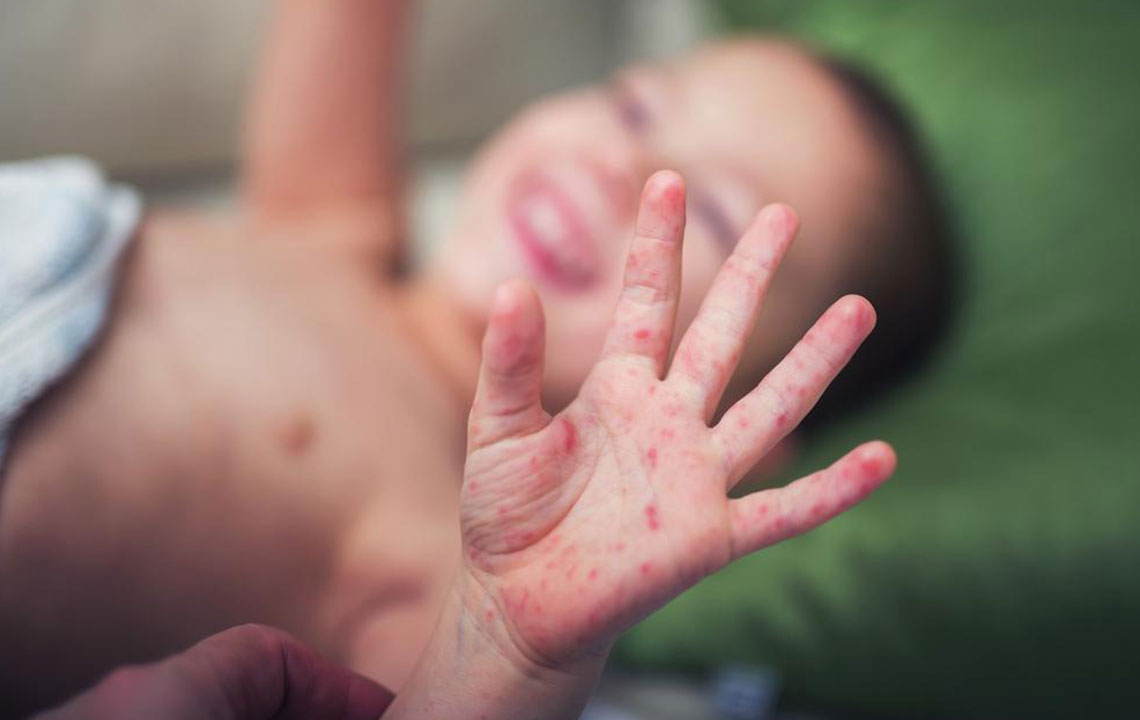Find the Cure for Baby Eczema with the Right Creams
Eczema is an itchy skin condition that affects people with dry skin. A child diagnosed with eczema has atopic eczema, which is basically a term for inheriting certain conditions like hay fever, asthma, and eczema.
Baby eczema mostly affects babies around the back of the knees, elbows, face, and neck. The development of eczema can lead to fluid oozing out or even bleeding, depending on the state of the condition.

When eczema develops, it indicates that the skin’s barrier is down and not functioning properly. When eczema occurs, the skin’s barrier is vulnerable, increasing the possibility of other infections invading the body. This can lead to other skin problems like an allergy.
Causes of baby eczema and risk factors
The causes of baby eczema are not exactly known. However, there are a few things you need to be aware of. Baby eczema can lead to flare-ups that cause inflammation of the skin and bleeding. Itching of the affected regions can lead to infections. Inflammation can worsen by the use of various chemical bath products like soaps, shampoos, and creams. Using natural, chemical-free products can help get some relief. Eczema can affect your baby’s sleep patterns as well.
Treatment of baby eczema
Baby eczema can be treated with the use of a baby eczema cream. You can try using emollient lotion, along with a mild steroid cream for a short duration, depending on the doctor’s advice. Alternatively, you could use other baby eczema creams and ointments to help cure the itching.
The treatment, effectiveness, and duration of treatment mostly depend on the severity of eczema in your baby. If your baby has a mild case of eczema with a few dry and itchy patches of skin, you can try home remedies.
Otherwise, if it’s a severe case of eczema followed by bleeding and other infections, you may need to go for intensive treatment with follow-ups with a doctor who specializes in the treatment of this condition. Avoid baby eczema creams that contain skin irritants or harmful detergents like Aqueous Cream.
A baby eczema cream that uses steroids as part of its composition is usually prescribed by the doctor. Using steroid creams are safe provided the dosage is right and that you don’t apply it too often. Overuse of a steroid-based baby eczema cream results in the thinning of the baby’s skin, the results of which are not permanent. Aveeno is one choice that you have.
You can use emollient creams for baby eczema as many times as you want, depending on the severity of the condition.
If the condition of baby eczema worsens and you notice excessive bleeding, you may need to treat it with antibiotics.
A great treatment for baby eczema is wrapping the affected areas with wet bandages. Soak the bandages in emollient creams and wrap the affected area followed by dry wrapping. In dry wrapping, you need a layer of dry bandages over the wet bandages to hold them in place and letting the baby eczema cream penetrate the skin properly. You can use moisturizers and give your baby lukewarm baths to help moisturize the skin and prevent the dryness and itchiness that often accompanies eczema. Installing an air conditioner at home and preventing your baby’s exposure to low levels of humidity and dry air can help a lot.
Be sure to not overuse medication and follow up with your doctor whenever possible. Keep a food diary in place and track the foods your baby eats. This can help spot which foods don’t go well with your baby’s eczema. Make sure your baby avoids contact with patients affected by cold sores and genital herpes, as these can aggravate and worsen skin infections.
Finally, if you notice yellow or light-brown crust-like blisters filled with pus appearing atop your baby’s affected skin area, you should consult with your doctor immediately and use antibiotics when possible.
How to prevent baby eczema?
Baby eczema can be prevented in the following ways.
- Regularly breastfeeding for a minimum of 4 to 6 month
- Eliminating cow’s milk from your baby’s diet as it may cause flare-ups or allergic reactions
- Consulting with the doctor which foods to eliminate and how to balance out your baby’s diet to prevent eczema
- Giving probiotic products like yogurt or probiotic supplements to your baby
- Clothing your baby with light, cotton clothes, and making sure the bedding is light and cool
- Trimming the baby’s nails to prevent scratching and further skin irritation
If eczema runs in the family, then the chance of your baby getting this condition is high. Altering the diet to improve immunity and regular breastfeeding can help restore the skin barriers along with the use of doctor-prescribed baby eczema cream and ointments. Taking care of your baby and making sure he/she is in a cool and hygienic environment can provide relief and help alleviate symptoms.